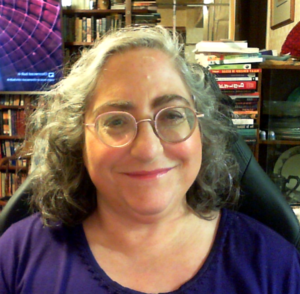Part Two
I have ten published novels. I’ll talk about just five today. Even five is too many, however, Judaism slips quietly into five, so I’m introducing five of my novels today. There are two novels I couldn’t write without being Jewish Australian. I’ll save those two for last. Let me give everything numbers, to make it easier.
1. In Langue[dot]doc 1305 (a time travel novel) I have a single Jewish character. That’s all. When I did my MA and PhD in Medieval History, I discovered many fascinating things about the Middle Ages, and some even more fascinating things about how we see the Middle Ages. I wanted to smash together our knowledge of the Middle Ages and how we interpret it and to make it explode. Also, I wanted marauding peasants. That single Jewish character is one of the pieces that led to the explosion.
I can’t tell you more without spoilers, but I can say that scientists checked my depiction of my bunch of scientists and said, “Scientists behave like this. How did you know?” That’s another story. Â
 2. My space opera novel, Poison and Light, tells of a society that reinvents the eighteenth century for all the wrong reasons. There are three Jewish towns on New Ceres, and they quietly rebel against the rule of the eighteenth century. Also, there are Jewish puns. The novel is set in a big city and the towns are a tiny part of the whole. The puns, the “I’m not what you think,” and the tendency to overeducation reflect my relationship to my own cultural relationship with my own country (as an Australian Jew). That’s the surface Jewishness.
2. My space opera novel, Poison and Light, tells of a society that reinvents the eighteenth century for all the wrong reasons. There are three Jewish towns on New Ceres, and they quietly rebel against the rule of the eighteenth century. Also, there are Jewish puns. The novel is set in a big city and the towns are a tiny part of the whole. The puns, the “I’m not what you think,” and the tendency to overeducation reflect my relationship to my own cultural relationship with my own country (as an Australian Jew). That’s the surface Jewishness.
Poison and Light has sword fights and balloon rides and gourmet food and much politics, but it’s actually about how Grania (the protagonist) deals with impossible loss and change. Her efforts are part of my personal response to the Shoah.
I’ve spent a lot of my life trying to learn how pogroms and exploitation and massacre and throwing people out of their homes and homelands affect survivors and I’m not even close to understanding. In Poison and Light, I built a society of colonisers and bigots because I wanted to understand the vested interests people have in defending what they know, even if it means hurting people. Poison and Light is one step towards me understanding, and none towards acceptance. Â
3. I used a different Jewish history in The Time of the Ghosts. The Time of the Ghosts is a contemporary fantasy set in Canberra. Three women (the youngest is sixty) and their sidekick fight supernatural threats. There aren’t nearly enough novels with Jewish fairies, so their sidekick reads a memoir written by a Jewish melusine. These three women are all heroes of the tea-drinking, dinner party, and stock-whip using kind. Â
4. My most recent novel (The Green Children Help Out) is totally about Jewish superheroes. My background is Australian Orthodox (somewhere between Modern Orthodox and Conservative) and I wanted to create an alternate universe where people could kick ass their personal work towards tikkun olam. Tikkun olam is more balancing the world and bringing it to rights than saving it, and it’s informed my whole life. It was about time it informed the lives of a bunch of superheroes who are, as the title suggests, the Green Children.
The Green Children Help Out is set on an alternate Earth (with magic) so that I could look into how to write people from cultural minorities. Also, I wanted a world so real that I could step into it in my mind. Â
5. The very first Australian fantasy novel that incorporated Australian Jewish culture was my own The Wizardry of Jewish Women. It uses the Anglo-Australian Jewish culture I come from and it includes my grandmother’s recipes with their London Sephardi origins. There are many novels about ultra-Orthodox Jews, and very few about secular Jews, and I wanted to even things out a bit.
What happens when secular Jews rediscover lost culture and a lemon tree becomes demonically possessed? I began building the family culture with food, so I’ll tell you more about The Wizardry of Jewish Women and give you some of the recipes in Part Three.
 BIO: Dr Gillian Polack is a Jewish-Australian science fiction and fantasy writer, researcher and editor and is the winner of the 2020 A Bertram Chandler Award. The Green Children Help Out is her newest novel. The Year of the Fruit Cake won the 2020 Ditmar for best novel and was shortlisted for best SF novel in the Aurealis Awards. She wrote the first Australian Jewish fantasy novel (The Wizardry of Jewish Women). Gillian is a Medievalist/ethnohistorian, currently working on how novels transmit culture. Her work on how writers use history in their fiction (History and Fiction) was shortlisted for the William Atheling Jr Award for Criticism or Review.
BIO: Dr Gillian Polack is a Jewish-Australian science fiction and fantasy writer, researcher and editor and is the winner of the 2020 A Bertram Chandler Award. The Green Children Help Out is her newest novel. The Year of the Fruit Cake won the 2020 Ditmar for best novel and was shortlisted for best SF novel in the Aurealis Awards. She wrote the first Australian Jewish fantasy novel (The Wizardry of Jewish Women). Gillian is a Medievalist/ethnohistorian, currently working on how novels transmit culture. Her work on how writers use history in their fiction (History and Fiction) was shortlisted for the William Atheling Jr Award for Criticism or Review.
If you’re an author or other fantasy and science fiction creative, and want to do a guest blog post, please check out the guest blog post guidelines. Or if you’re looking for community from other F&SF writers, sign up for the Rambo Academy for Wayward Writers Critclub!






